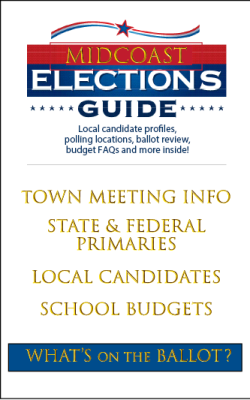Letter to the editor: Why we need a Camden noise ordinance
Camden voters have a chance to vote on an important improvement to our noise ordinance on November 8. Some questions that are natural for voters to ask include:
- Why do we need it?
- What does it cover?
- What is not covered & why?
- How was the noise limit chosen & why is it reasonable?
The goal of this letter is to answer these questions
- Why we need it:
- Primarily, it removes the subjectivity of the current ordinance regarding how loud is too loud which leads to arguments and animosity as well as difficulty in enforcement. This is because the standard prohibits “unreasonable loud noise” which is undefined. While many noise issues can be resolved between cooperative parties, many are not without an objective standard. Consequently, business owners, residents, and police offers responding to a complaint are put in a very difficult position to decide what should be done.
- In addition, both homeowners and business owners have asked the Select Board to provide some objective standard that defines what is acceptable and what is not.
- Like all towns, Camden is evolving both in development and property usage. Like Rockland, Rockport and Belfast have, Camden needs to update its noise ordinance to respond to these changes.
2. What does it cover?
- It covers any noise/sound levels between 11 PM and 7 AM that last for more than 5 minutes unless a prior permit is obtained for special events (e.g. weddings, receptions, Schooner days, and similar relatively time limited events). It also expands the noise limitation to cover the entire town, not just the downtown area currently covered.
3. What is not covered and why?
- It does not cover traffic noise. Although this would be desirable, it is technically very difficult. This is because much offensive traffic noise is quite short in duration from any particular vehicle, regardless of how loud. It is challenging and time consuming to enforce, and many exceptions need to be enumerated (for Emergency vehicles, snow removal and road construction equipment, etc). Because of this, small towns have not found a successful way to regulate traffic noise. Even larger cities, with more extensive streets have not been very successful in their attempts. Some success has been achieved in state highways which enable the construction of berms and sound blocking walls, etc., but this only results in cutting the perceived noise in half (at most) and at great expense). Our ordinance does not try to address the complex issue at his time, but to solve the challenges we can solve first.
4.What is the proposed limit and why is it reasonable?
- The proposed limit is 65 dBA measured at the property line of the noise source. This level corresponds to the level of two people talking at a normal conversational noise level at the property line. The dBA term means that the measuring instrument attempts to match the sound sensitivity of the human ear for all audible frequencies. Any level chosen must balance the interests of both businesses and residents. The 65 dBA level corresponds to the level many towns use for their night time regulations and it was chosen after our local police officers made and analyzed hundreds of night time noise measurements.
- These measurements were made at 6 different locations in town and at 3 different times every night during our peak tourist season. These measurements showed that noise levels often exceeded 85 dBA.
- Reasonable and affordable measures are available to business owners to allow them reduce these extreme levels enough to comply with the proposed standard. By adopting the proposed standard, residents can be assured the previously excessive noises will be reduced to a reasonable level without requiring them to be continual complainers or just “bite the bullet”.
- Finally, current smartphone technology enables anyone to download a free app that will measure and record the actual dBA sound level anytime they feel a noise is too loud. Providing this information to the police officers will be very helpful for enforcement when that becomes necessary. It also enables more objective discussions/decision between neighbors when that becomes necessary,
Adopting this standard with be a great improvement over what we have now and will give us some real (not speculative) basis for deciding whether the proposed level is the right balance of all interests in our town or what improvement might be needed in the future.
Our police chief, residents, and business owners all feel that we need to improve our noise ordinance and that the proposed level is a proper balance of the interests of everyone in Camden.
Dennis McGuirk lives in Camden





























